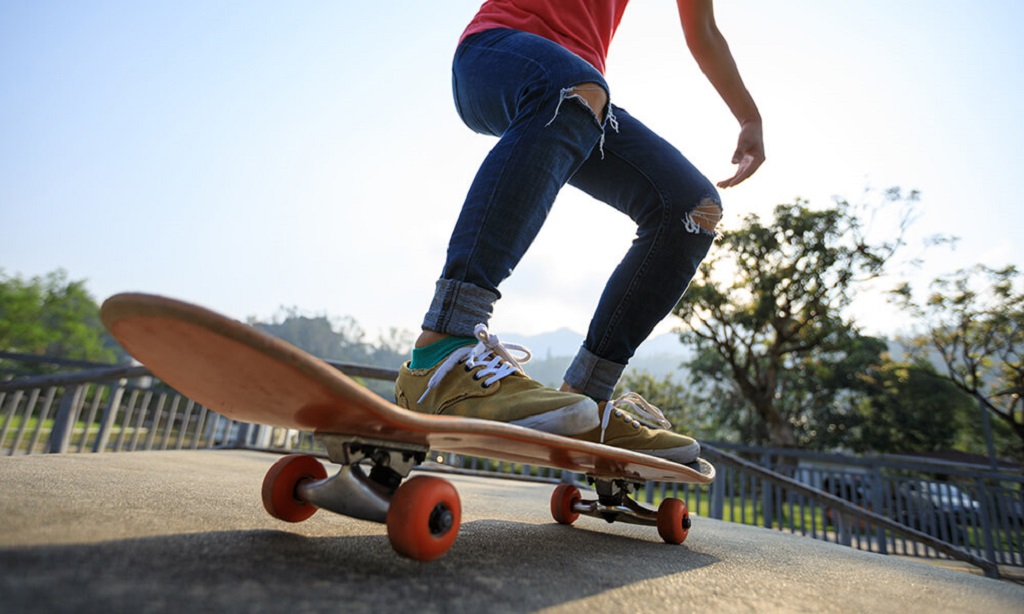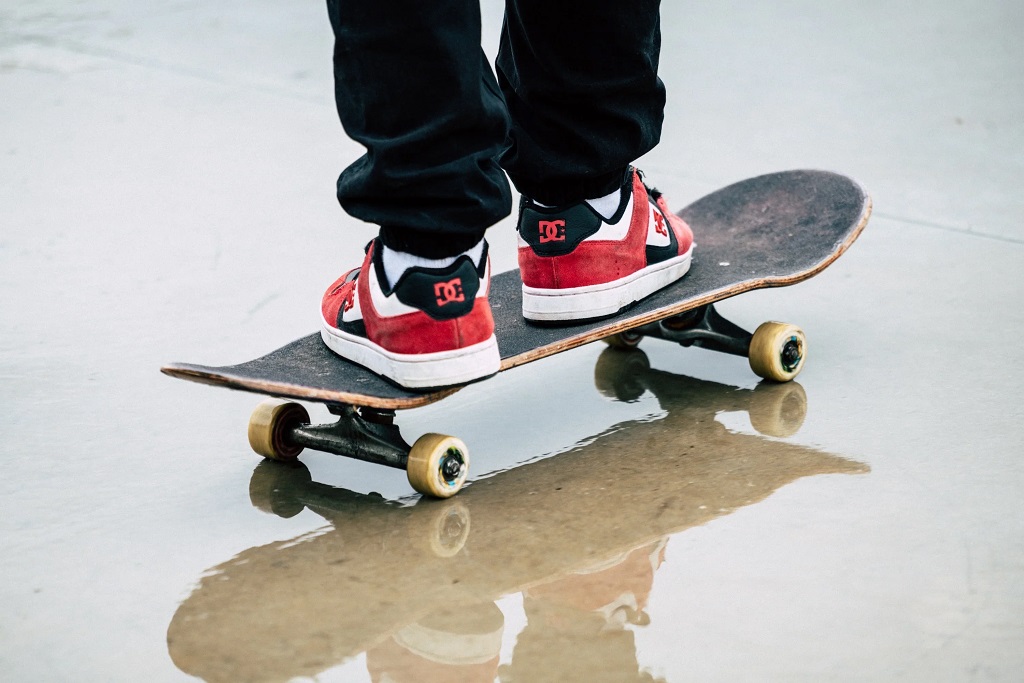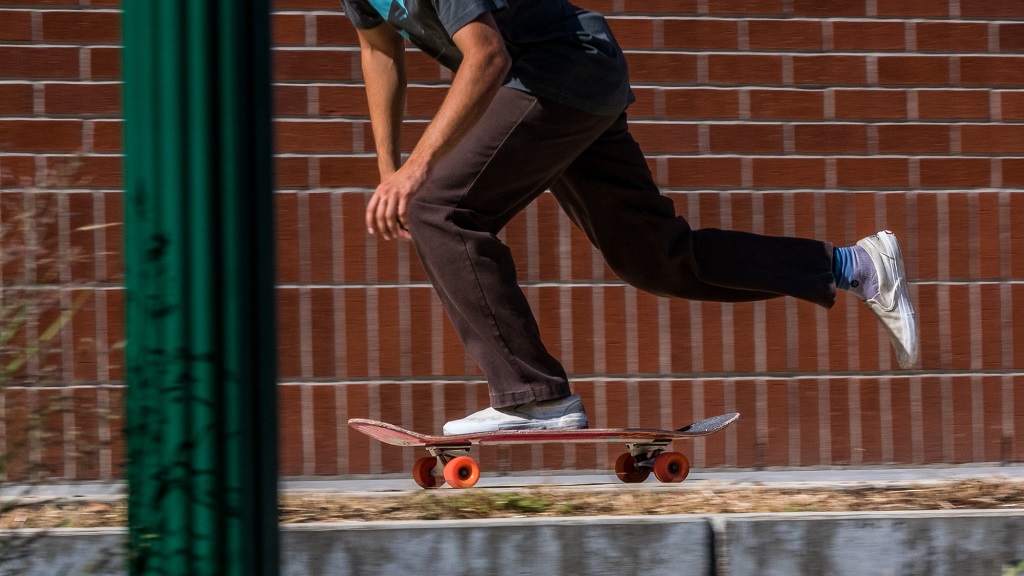To get better at skateboarding as a beginner, practice regularly and focus on mastering fundamental techniques like balance and foot positioning. Consistent repetition and determination are key to improving your skills and building confidence on the board.
Engage in proper warm-up exercises and start with basic tricks before progressing to more advanced maneuvers, aligning with the latest Skateboard Trends for an effective and safe learning curve. Seek guidance from experienced skateboarders, watch tutorials online, and always prioritize safety by wearing protective gear. Remember that progress takes time, so be patient with yourself and enjoy the learning journey. Staying informed about skateboard trends not only keeps your skills relevant but also helps you adapt to the evolving nature of skateboarding, ensuring a comprehensive and enjoyable experience as you develop your abilities.
By staying dedicated and pushing your limits, you will gradually become more proficient in skateboarding and develop your unique style on the pavement.
Getting Started With Skateboarding
| When starting skateboarding, choose the right skateboard that suits your skill level.
Understanding safety gear is crucial to prevent injuries while learning to skateboard. |
Mastering Basic Skateboard Techniques
Proper foot placement on the skateboard is crucial for beginners to learn, especially when considering goofy riding skateboard techniques or the regular stance. Balancing is key to avoiding falls and injuries. When pushing off, use your back foot to propel forward, whether you’re in a goofy or regular position. Practicing these basics will help improve your skills quickly. It’s important to remember to stay relaxed and keep practicing consistently, as mastering the stance and movement, including the specifics of goofy riding, forms the foundation of all skateboarding skills and tricks.
Learning Fundamental Maneuvers
Skateboarding is an exciting sport that requires practice and determination. Learning fundamental maneuvers, such as executing ollies and practicing turns and carves, is crucial for beginners. It’s important to start with the basics, like maintaining balance and stance, before attempting more advanced techniques. Regular practice and persistence are key to improving your skills. Engaging with the skateboarding community can also provide valuable tips and support. Remember, everyone progresses at their own pace, so don’t be discouraged by challenges. Embrace each learning opportunity and celebrate progress along the way.
Exploring Advanced Tricks
Once you’ve mastered the basics of skateboarding, it’s time to take your skills to the next level by delving into the world of advanced tricks. Two essential tricks for any aspiring skateboarder are kickflips and heelflips. These tricks require precision, timing, and a good understanding of your board’s movement. With kickflips, you execute a flick motion with your front foot while simultaneously popping the tail down. Heelflips, on the other hand, involve a similar flick motion, but this time using your back foot. Practicing these tricks consistently will help you hone your skills and add some flair to your skateboarding repertoire.
Another crucial aspect of advanced skateboarding is perfecting grinds and slides. Grinds involve sliding your skateboard’s trucks across an obstacle such as a rail or ledge. Slides, on the other hand, require you to slide your skateboard’s wheels across the surface. To execute these tricks successfully, it’s important to maintain your balance, adjust your weight distribution, and find the perfect angle to approach the obstacle. Regular practice and experimentation with different surfaces and obstacles will help you become more comfortable and proficient in executing grinds and slides.
Refining Skills And Progressing
Skateboarding is an exciting sport that requires dedication and practice to improve. To become better, beginners should focus on refining their skills and progressing in various aspects of skateboarding. One way to do this is by utilizing different skatepark features. Skateparks offer a range of obstacles, such as ramps, rails, and ledges, that can help beginners develop their abilities. By experimenting with these features, skateboarders can learn new tricks, improve their balance and control, and gain confidence in their abilities. Additionally, beginners need to develop their style. By adding personal flair to their tricks and maneuvers, skateboarders can truly make their mark in the sport. With patience and consistent practice, beginners can achieve their goals and become better skateboarders.
Frequently Asked Questions Of How To Get Better At Skateboarding For Beginners
How Can Beginners Improve Their Skateboarding Skills?
To improve skateboarding skills as a beginner, practice consistently and focus on mastering the fundamentals, such as balance, foot position, and pushing technique. Additionally, watching tutorial videos, seeking guidance from experienced skateboarders, and learning from your mistakes can greatly enhance your progress.
What Safety Equipment Should Beginners Wear While Skateboarding?
Beginners should wear a helmet, knee pads, elbow pads, and wrist guards while skateboarding to protect themselves from potential injuries. It is crucial to prioritize safety and make sure all safety equipment fits properly and is worn correctly.
How Can Beginners Overcome The Fear Of Falling While Skateboarding?
Falling is a normal part of learning skateboarding. To overcome the fear of falling, start by practicing on smooth, flat surfaces and gradually progress to more challenging terrains. Learning how to fall safely and using protective equipment can also boost confidence and alleviate fear.
Conclusion
Mastering skateboarding takes time, practice, and dedication. With the right techniques and mindset, beginners can improve their skills and confidence on the board. Consistent practice, seeking feedback, and staying motivated are crucial for progress. By staying focused on their goals and embracing the learning process, beginners can become better skateboarders over time, ensuring a safer and more enjoyable experience—prompting the essential question, ‘Should I wear a helmet skateboarding



